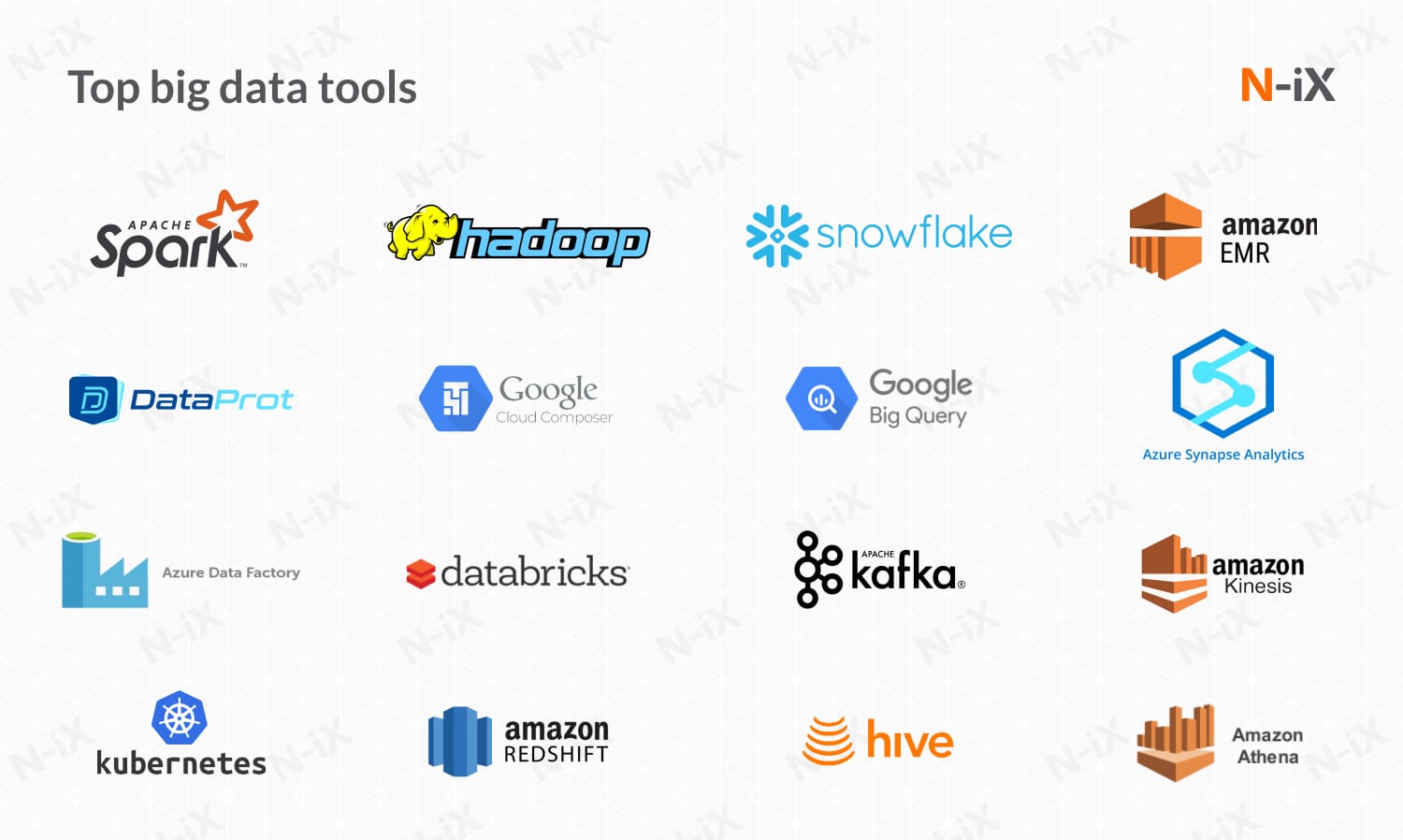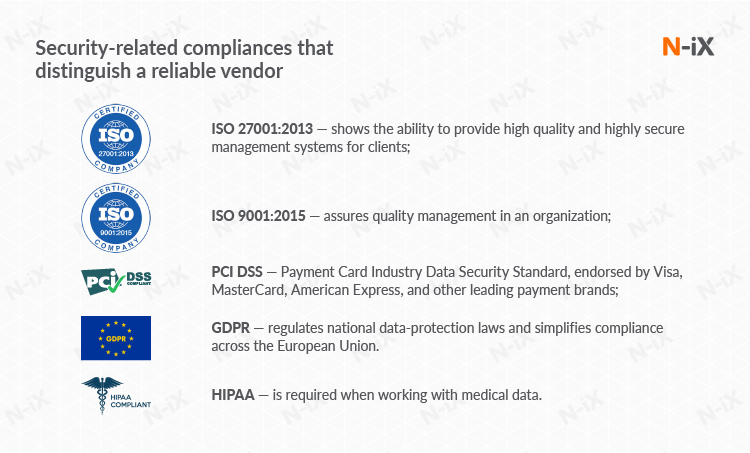Data integration and ETL (Extract-Transform-Load) are the key components of any data delivery pipeline. They gather, clean, and provide relevant data that supports you in achieving your goals, be it increasing business process efficiency, optimizing costs, or improving the quality of provided services.
However, just like any data-related project, ETL data integration is not easy. Should you use third-party cloud services or build your own custom solution on premises? What are the challenges that you need to prepare yourself for? And how do you find experts with sufficient experience in data integration services who can help you implement your strategies? We will address all of these questions, and more, in our article.
The value of building a custom data and ETL development solution
This method involves building a completely custom data integration and ETL solution from scratch. As such, it is rarely used with cloud infrastructure and is generally best used with on-premise systems.
Custom data integration solutions bring the most value when used with on-premise infrastructures. While building such solutions is certainly more complicated as compared to the use of third-party cloud services, they offer unique advantages that are impossible to achieve otherwise.
- Complete development control. Custom development allows you to tailor the solution to your business. By having full control over the development process, you can implement the features to match your needs. This is essential if you have to work with particular data sources that may not be supported by any third-party services.
- Flexibility and customization. A solution built from scratch can more easily keep up with the data engineering trends as your business grows. This flexibility allows you to introduce new features, such as LLM-powered data cleansing or automated pipeline generation, as the need arises.
- Effective cost allocation. ETL data services are not something that comes cheap. However, without the need to rely on third-party service providers heavily, you can easily allocate and mitigate all of your development costs. More importantly, with careful planning and preparation, you can remove the occurrence of any unexpected expenses almost completely.
- Added security. Custom ETL data integration offers a more secure way of development and data handling as compared to the use of cloud services. It offers the highest level of data security, primarily when used with on-premise infrastructures. This makes them the preferred choice of industries where data security is crucial, such as healthcare and finance.

ETL data integration and cloud services
The other method of ETL and data development is the use of the cloud and the services offered by cloud providers (AWS, Azure, Google, etc.). While this method cannot match the custom ETL data development in terms of customization and development control, it has other very useful advantages.
- Faster development. Cloud providers offer a wide range of services that can be easily integrated into your infrastructure. These are complete solutions that can be used immediately and do not require additional time or investment in development.
- Flexible scaling. Increasing the data storage capacity or computing power when using cloud services is as simple as raising your monthly fee. As a result, your infrastructure can be easily scaled up or down depending on the amount of data that you have to deal with.
- Cost optimization. The use of cloud services is less cost-intensive as compared to custom development. Such solutions do not require a large team of experts and can be deployed and maintained with just a few cloud and DevOps engineers. Moreover, cloud-based data integration removes the need to maintain on-premise data centers, which can also induce substantial costs. However, keep in mind that the use of third-party services can be a double-edged sword and will lead to significant costs if not managed properly.

Data integration and ETL services: how to do it right
Approximately 15% of all data projects succeed while the rest either do not meet the original expectations or fail completely. To be among those that succeed you must follow the fundamental best practices of ETL development.
1. Find the right ETL services provider
The lack of technical expertise is the first most-common reason for data project failure. Data integration requires broad technical expertise which you may lack, even if you have an in-house technical team. Therefore, you have to make sure that you have experts with the right technical skillset to undertake such a project.
Outsourcing team extension services provide an excellent alternative when finding experts locally happens to be challenging. Finding the right partner (more on this later) will gain you access to a larger talent pool which makes it easier to fill any technical gap.
2. Set clear goals that you aim to achieve
The second-most-common reason why many data projects fail is the lack of vision of the objectives that project stakeholders want to achieve. Most often than not, initiating such projects without clear end goals leads to various new requirements or unpredictable challenges along the way. This, in turn, results in development delays, cost and management overheads, and, in most extreme cases, complete project failure. Therefore, the initial stage of any data project should be the outlining of your goals, both on the business (raising profits, predicting equipment failure, etc.) and the technical (automating processes, reducing latency, etc.) levels.
3. Conduct a thorough data integration assessment
Going through an extensive data integration audit (also known as the Discovery Phase) before initiating the project is another great practice that helps put your data project on the right track right from the beginning. Preferably, this step is dedicated to your technical partner who can use their expertise to analyze the existing infrastructure and find areas of improvement that you may not have been aware of.
Moreover, after conducting this Discovery Phase your partner can provide you with a clear data integration plan, complete with recommendations on the improvements, tools, and most efficient technologies. Completing the project afterward is just a matter of following the outlined data integration steps.
How to choose the right ETL service provider
The success of your project greatly depends on the provider you partner with. While the following are good general practices, if your project involves moving from a legacy system, it's crucial to understand how to select from among the top ETL migration companies.
1. Assess the offered services and expertise
First of all, you need to make sure that the portfolio of services and technical expertise offered by your partner is sufficient to match all your project’s requirements. The following areas must be covered:
-
Data services. Naturally, an experienced provider of ETL services must have solid expertise in Big Data, Data Science, and Data Analytics, as well as the most widely-used data tools and technologies. These include Apache Spark, Hadoop, Kafka, Hive, Pig, Impala, etc.

-
Cloud development. While it may seem that this expertise is only important for cloud infrastructure, it is not so. On-premise solutions can move certain subsidiary systems to the cloud to optimize performance without compromising security. Therefore, both on-premise and cloud-based infrastructures have much to gain from partners with expertise in the main cloud providers (Azure, Amazon, Google).

-
DevOps engineering. DevOps plays the key role of deploying and optimizing any data delivery pipeline, be it custom-built, or the one using third-party cloud services. Hence, it is crucial that your partner can provide you with DevOps engineers who have solid expertise in CI/CD, Infrastructure as a Code, automation & orchestration, monitoring & logging, and cloud & infrastructure providers.

2. Get a detailed look at the experience
Since executing a data integration plan can be quite challenging, it is important that your partner has solid experience with such projects. Therefore, you need to get a close look at their previous ETL services partnerships to make sure that they have sufficient experience to match your expectations. You should explore the partner’s website for success stories and case studies, as well as platforms such as The Manifest, Forrester, and Clutch.co which provide verified client testimonials.
3. Assess the data protection plan and policies
The ETL development team provided by your partner will have direct access to your infrastructure and data. At the time when billions are lost every year due to various cyber attacks and breaches, it is crucial to make sure that your internal systems are protected at all times.
Hence, you need to inquire and evaluate your partner’s data protection policies. Is there a solid data protection plan? Which tools and methodologies are used to prevent data breaches? Are employees regularly informed about the latest data protection trends? Does your partner comply with the necessary data protection standards? These questions need to be asked and answered before starting the cooperation.

Data integration services in action: a success story of Gogo
ETL development and data integration services were at the core of N-iX’s partnership with Gogo, a global provider of in-flight entertainment and connectivity services. The company was aiming to improve the quality of its services by eliminating downtimes that were caused by equipment failures.
After completing the data integration assessment, the N-iX team developed an end-to-end data delivery pipeline that collects, cleans, analyzes, and stores data from Gogo’s equipment. Not only did this streamline all data processing activities, but it also opened new opportunities for improvements. Indeed, the N-iX team used its Data Science and Machine Learning expertise to create models for predicting equipment failures.
As a result, Gogo can now predict equipment malfunctions 20-30 days ahead with 90%+ accuracy. This, in turn, helps the company provide timely maintenance and avoid service interruptions, resulting in better quality service and reduced expenses. Learn more about our partnership with Gogo.
Why choose N-iX ETL development and data integration services for your project?
- N-iX has a strong Data Unit with over 140 professionals with expertise in Big Data, Data Analytics, Data Science, AI & ML;
- We also have over 45 DevOps engineers who have successfully delivered over 50 projects of varying complexity;
- N-iX is an official Amazon Consulting Partner, Microsoft Gold Partner, and Google Cloud Partner, proving its solid expertise in cloud development;
- N-iX has over 20 years of experience in providing various IT outsourcing services, which include ETL services and data integration;
- We have experience in successfully delivering projects from a wide range of domains, such as telecom, manufacturing, fintech, and more;
- N-iX has formed partnerships with many leading global enterprises, such as Lebara, Gogo, Fluke, OfficeDepot, etc.




